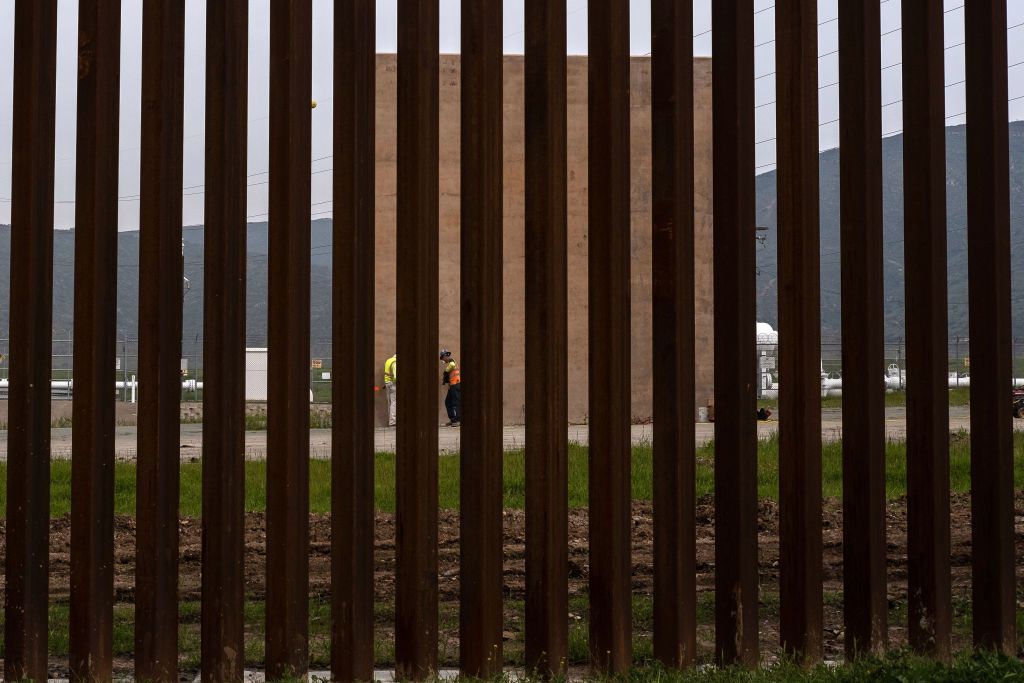The GOP-controlled Senate voted 59 to 41 Thursday to reject President Donald Trump’s attempt to circumvent Congress and spend billions of unappropriated funds on a massive wall along the nation’s southern border.
The move to block Trump’s national emergency declaration represents a significant, if symbolic, rebuke of the president’s strategy, but does not appear likely overcome a promised presidential veto.
In addition to every Senate Democrat, 12 Republicans voted to pass House Joint Resolution 46, which “terminates the national emergency related to the U.S.-Mexico border, declared by the President on February 15, 2019.”
Sen. Lamar Alexander (R-TN), who voted for the resolution, said in a floor speech that the emergency declaration was “inconsistent” with the constitution that he “took an oath to protect and to defend.” He noted that Trump’s order sets a “dangerous precedent” as “already Democrat [sic] presidential candidates say they would declare emergencies” to tear down Trump’s wall, restrict gun ownership, restrict oil exports and offshore drilling, and “other left-wing enterprises,” without congressional approval.
Sens. Roy Blunt (R-MO), Susan Collins (R-ME), Mike Lee (R-UT), Jerry Moran (R-KS), Lisa Murkowski (R-AK), Rand Paul (R-KY), Rob Portman (R-OH), Mitt Romney (R-UT), Marco Rubio (R-FL), Pat Toomey (R-PA), and Roger Wicker (R-MS) joined Alexander in backing the measure.
An identical measure passed in the Democratic-controlled House by a 245 to 182 vote in late February, with 13 Republicans bucking Trump.
Notably, the office of Rep. Denver Riggleman (R-VA) sent out emails this week to more than two dozen constituents claiming to have voted for the measure, even though he did the opposite.
During his presidential campaign, Trump promised time and again that he would build a wall along the southern border, funded entirely by Mexico, in order to crack down on immigration and stop asylum seekers from taking refuge in the United States. After Mexico rejected the idea, Trump shifted his stance, claiming taxpayers would initially foot the bill, but would be reimbursed later through a not-yet-ratified trade deal between the two countries.
After realizing the wall proposal was deeply unpopular, the president forced the longest partial government shutdown in U.S. history in an unsuccessful attempt to persuade Congress to appropriate more than $5 billion in taxpayer dollars to begin construction on the project. Eventually, after being granted just $1.35 billion for new fencing and barriers, and nothing for his wall in the budget deal that ended that shutdown, Trump announced he would effectively go it alone and use an unprecedented national emergency declaration to facilitate an end run around Congress.
A large coalition of former GOP lawmakers and of bipartisan former national security officials have urged Congress to preserve the constitutionally required separation of powers by passing this resolution to stop Trump’s national emergency. Trump and his administration actively lobbied Republican senators in an ill-fated attempt to stop the resolution from passing.
But many Republicans who earlier spoke out against Trump’s use of an emergency declaration caved on Thursday and voted to back him. Senate GOP leaders including Majority Leader Mitch McConnell (R-KY), Majority Whip John Thune (R-SD), and Judiciary Subcommittee on Border and Immigration John Cornyn (R-TX) all reportedly tried to dissuade Trump from taking the action. Thom Tillis (R-NC) promised last month in a Washington Post op-ed that he would vote for the resolution, but announced Thursday that he had changed his mind after consulting with the administration. Cory Gardner (R-CO), who said in February that “Congress is most appropriately situated to fund border security,” also voted against the resolution.
A big National Emergency vote today by The United States Senate on Border Security & the Wall (which is already under major construction). I am prepared to veto, if necessary. The Southern Border is a National Security and Humanitarian Nightmare, but it can be easily fixed!
— Donald J. Trump (@realDonaldTrump) March 14, 2019
Trump has vowed to veto the measure and neither the House nor Senate votes indicate enough support for a congressional override. But Thursday’s vote made it clear that neither the Democratic-run House nor the Republican-controlled Senate supports Trump’s expensive and possibly illegal scheme to make Americans pay for his wall.


